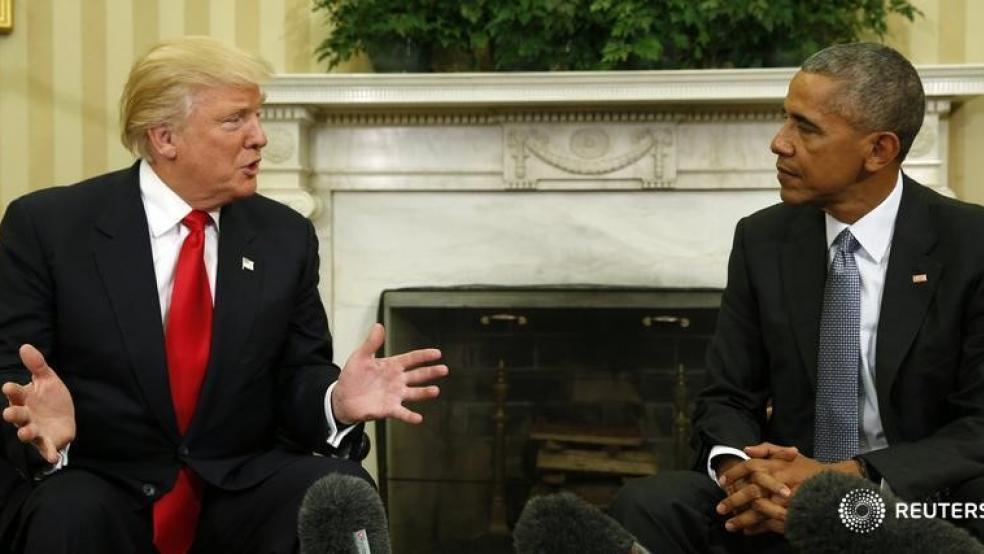A little more than six weeks before Donald Trump is set to take over the White House, the Obama administration has released a new memo compiling guidelines for the use of military force. While some of the content is in the form of executive orders that will not be binding on the incoming president, the decision to release the document so close to the presidential transition looks very much like the outgoing president laying down a marker.
Throughout his campaign, Donald Trump has advocated the use of various aggressive military tactics, some of which appear to rise to the level of war crimes. These tactics include state-sanctioned torture, deliberate targeting of the non-combatant families of terrorism suspects and indiscriminate bombing.
Related: $14 Billion for More Navy Combat Ships? Trump Faces a Big Decision
Titled “Report on the Legal and Policy Frameworks Guiding the United States’ Use of Military Force and Related National Security Operations,” the 61-page document contains a foreword by President Obama noting that the object of the document is to help establish rules and guidelines that reduce the chances that an “ill-considered decision” could lead to unnecessary bloodshed or loss of life.
At the same time, it encourages future administrations to be as transparent as possible about decisions to use force “so that an informed public can scrutinize our actions and hold us to account.” Obama called for the document to be updated and released to the public on an annual basis.
While the document had been in preparation well before the outcome of the 2016 presidential election was known, some elements of it can be read as a direct reminder to President-elect Trump of the limits of the lawful use of force.
“First, U.S. targeting practices comply with the principle of distinction, which in the targeting context requires that attacks be limited to military objectives and that civilians or civilian objects not be made the object of attack,” the section on targeting reads. “Even when the United States is dealing with enemy forces that do not wear uniforms or carry their arms openly, the United States goes to great lengths to apply this principle.”
Related: The War Hawks Are Flocking to Trump Tower
The document also reinforces the ban on torture. In the wake of 9/11, the U.S. intelligence services condoned and participated in the mistreatment of prisoners, including the use of “waterboarding” as a means of extracting information. (In the wake of the Second World War, the U.S. tried and executed Japanese soldiers who were found to have waterboarded American soldiers.)
Trump has vowed to bring back waterboarding “and a hell of a lot worse.”
The document released by the White House Monday includes the admonition that “torture and cruel, inhuman, or degrading treatment or punishment (CIDTP) are categorically prohibited under domestic and international law, including international human rights law and the law of armed conflict. These prohibitions exist everywhere and at all times.”
Among other things, the document also points out that indiscriminate bombing is also out-of-bounds under the laws of war as well as U.S. policy.
Related: 6 High-Tech Terrorist Hunting Tools on the Pentagon’s Holiday Wish List
“U.S. targeting practices comply with the principle of proportionality, which, among other things, prohibits attacks in which the expected loss of life or injury to civilians and damage to civilian objects incidental to the attack would be excessive in relation to the concrete and direct military advantage expected to be gained,” it notes. “Additionally, feasible precautions must be taken in conducting an attack to reduce the risk of harm to civilians and other protected persons and objects, such as, in certain circumstances when it is appropriate to do so, warning civilians before bombardments.”
Some of the guidance surrounding the use of force is laid out in executive orders that Trump will be free to disregard when he takes office, but Obama plainly felt that it was worthwhile to put it all in one place for Trump -- and the rest of the country -- before walking out the door.





